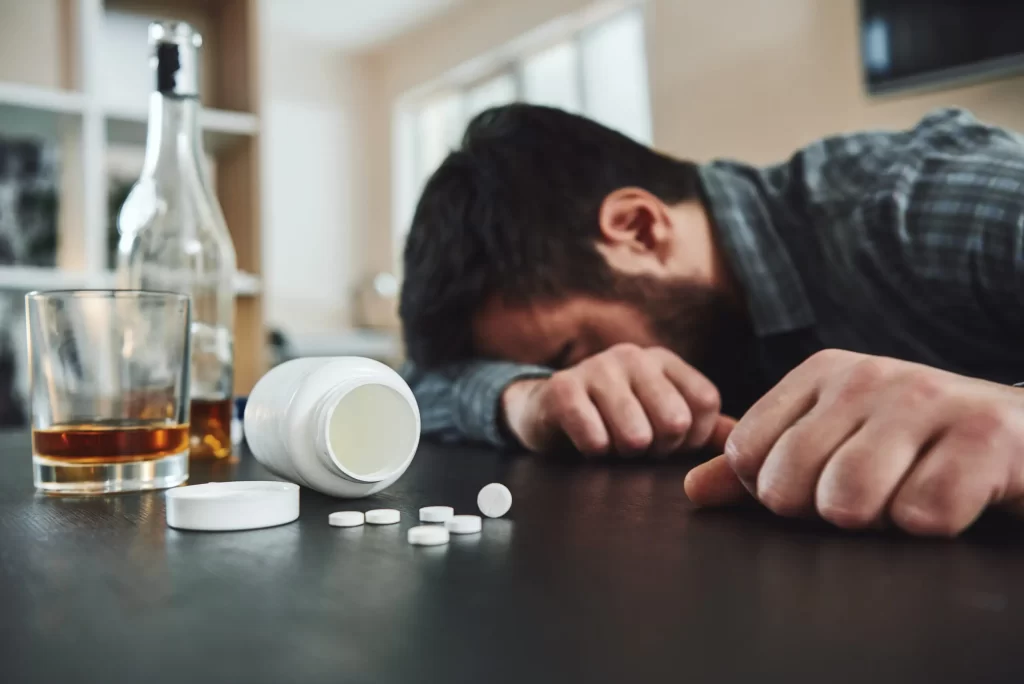Substance Abuse
Substance Abuse
What is Substance Abuse?
Substance abuse treatment involves various interventions aimed at helping individuals overcome addiction to drugs or alcohol and achieve sustained recovery. Treatment approaches can vary based on the type and severity of substance use disorder, as well as individual needs and preferences. Here’s an overview of substance abuse treatment:

Detoxification (Detox)
Medical Supervision:
- Detoxification often begins with medical supervision to manage withdrawal symptoms safely.
- Medications may be prescribed to alleviate discomfort and reduce the risk of complications.
Supportive Care:
- Individuals undergoing detox receive supportive care to address physical and psychological needs.
- Monitoring vital signs and providing counseling and emotional support can help individuals navigate the detox process.
Behavioral Therapies
Cognitive Behavioral Therapy (CBT):
- Helps individuals identify and modify patterns of thinking and behavior that contribute to substance use.
- Focuses on developing coping skills, problem-solving strategies, and relapse prevention techniques.
Motivational Interviewing (MI):
- A client-centered approach that helps individuals explore and resolve ambivalence about change.
- Encourages self-motivation and commitment to treatment and recovery goals.
Contingency Management (CM):
- Uses incentives or rewards to reinforce positive behaviors such as abstinence or adherence to treatment.
- Can help increase motivation for change and improve treatment outcomes.
Dialectical Behavior Therapy (DBT):
- Combines cognitive-behavioral techniques with mindfulness practices to address emotional dysregulation and impulsivity.
- Effective for individuals with co-occurring substance use and mental health disorders.
Medications
Opioid Agonist Therapy:
- Medications such as methadone, buprenorphine, and naltrexone can help reduce cravings and withdrawal symptoms in individuals with opioid use disorder.
Medication-Assisted Treatment (MAT):
- Combines medication with counseling and behavioral therapies to address substance use disorders.
- Effective for opioid and alcohol use disorders.
Medications for Alcohol Use Disorder:
- Disulfiram, naltrexone, and acamprosate are FDA-approved medications for treating alcohol dependence.
- Help reduce cravings, prevent relapse, or create aversive reactions to alcohol.
Residential or Inpatient Treatment
Structured Environment:
- Provides a highly structured and supportive environment for individuals to focus on recovery.
- Offers 24/7 medical supervision, counseling, and therapeutic activities.
Peer Support:
- Allows individuals to connect with peers who are also in recovery, providing mutual support and encouragement.
Comprehensive Treatment:
- Addresses various aspects of substance use disorder, including medical, psychological, social, and vocational needs.
Outpatient Treatment
Flexibility:
- Allows individuals to receive treatment while continuing with work, school, or other responsibilities.
- Offers various levels of intensity, from regular outpatient counseling to intensive outpatient programs (IOPs).
Continued Support:
- Provides ongoing counseling, medication management, and support groups to promote sustained recovery.
Self-Help Groups
12-Step Programs:
- Organizations such as Alcoholics Anonymous (AA) and Narcotics Anonymous (NA) offer support and fellowship for individuals in recovery.
- Follow a structured program of spiritual and behavioral principles to achieve abstinence and maintain sobriety.
SMART Recovery:
- A science-based alternative to traditional 12-step programs.
- Focuses on self-empowerment, self-reliance, and evidence-based strategies for achieving and maintaining recovery.
Holistic and Alternative Therapies
Mindfulness and Meditation:
- Practices that promote self-awareness, stress reduction, and emotional regulation.
- Can be beneficial as adjunctive therapies to traditional treatment approaches.
Yoga and Exercise:
- Physical activity can improve mood, reduce stress, and promote overall well-being during recovery.
Nutrition and Wellness:
- Emphasizes the importance of healthy eating habits, sleep hygiene, and self-care practices for recovery.
Family Therapy and Support
Family Education:
- Helps family members understand addiction as a disease and learn effective communication and coping strategies.
Family Therapy:
- Addresses family dynamics, conflicts, and enabling behaviors that may contribute to substance use.
- Involves family members in the recovery process to strengthen support networks and improve outcomes.
Conclusion
Substance abuse treatment encompasses a range of interventions aimed at addressing physical, psychological, and social aspects of addiction. By combining detoxification, behavioral therapies, medications, support groups, and holistic approaches, individuals can achieve sustained recovery and improve their overall quality of life. Treatment plans should be tailored to the individual’s specific needs, preferences, and circumstances, with a focus on long-term success and well-being.
741-741
If you’re in emotional distress, text HOME to connect with a counselor immediately.
988
Call or text the National Suicide Prevention Lifeline for 24/7 emotional support.
911
If you’re having a medical or mental health emergency, call 911 or go to your local ER.
